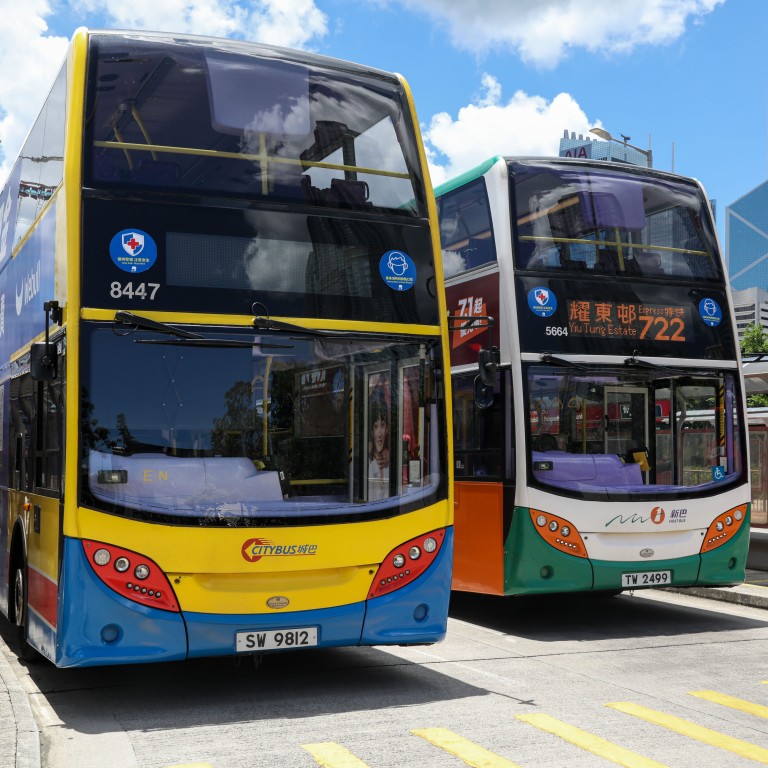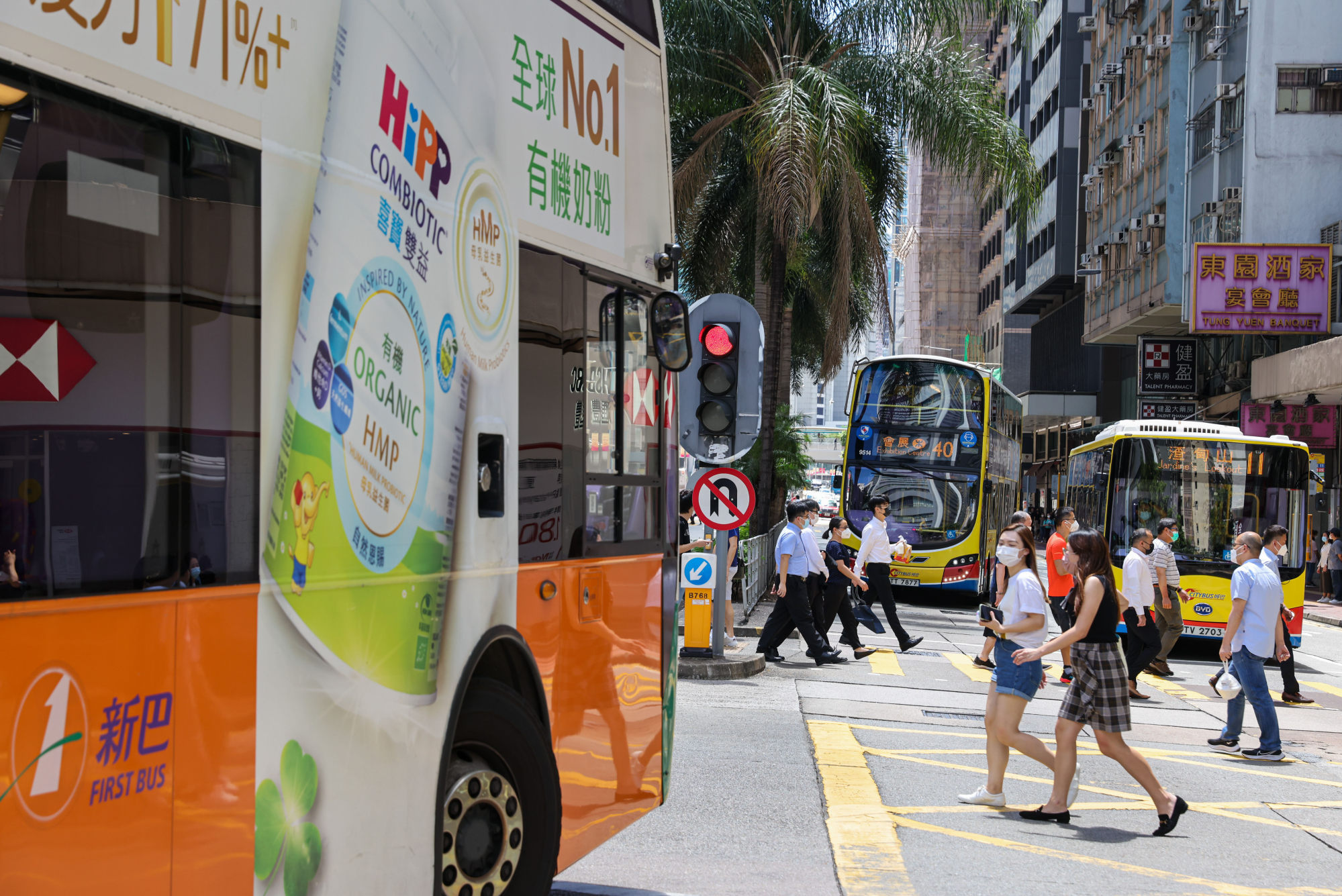
Hong Kong public transport firms Citybus and New World First Bus to join forces in bid to stem losses
- Citybus and New World First Bus to join forces next year in new government 10-year deal, owner says it will invest more than HK$3.5 billion over franchise term
- Union warns that merger will reduce competition and not tackle underlying problems at the two companies
Public transport operators Citybus and New World First Bus will merge into a single company as part of a 10-year franchise renewal by the Hong Kong government.
The owner of the merged franchise, to be called Citybus Ltd, also said on Tuesday it would invest more than HK$3.5 billion (US$445.9 million) over the franchise term.
But a transport workers’ union warned the merger would reduce competition and also failed to tackle underlying management problems present in the two companies.

A government spokesman said the merger would not affect fares for current routes.
“The merger exercise will not come with any changes in fares for all existing routes. Citybus Ltd (Franchise for the Urban and New Territories bus network) will strive to enhance bus service reliability and further improve its lost trip situation,” the spokesman said on Tuesday.
The decision to allow a merger of the two franchises, which operated some overlapping services, would enable the city to continue to fine-tune its bus network and allow the owner of the combined firm to deploy its resources more flexibly, he said.
Relevant changes to bus routes would be handled by the government’s annual route planning programme, he added.
The sole operator would be allowed to commence operations after the franchises for Citybus and New World First Bus end on July 1 next year.
Both companies operate more than 299 routes and 1360 buses as of June 2022, according to a Legislative Council document released on Tuesday.
At present, KMB is the largest of the five franchises operating in the city and runs 424 routes in Kowloon and the New Territories, as well as some cross-harbour services.
Long Win Bus, a sister company of KMB, also held the franchise for its airport and Lantau Island bus routes extended by another decade to 2033.
Citybus and New World First Bus, which focus on Hong Kong Island and cross-harbour routes, are second and third respectively in terms of route coverage.
New owner of Hong Kong’s Citybus, New World First Bus weighing merger
Adam Leishman, CEO of Bravo Transport Services, which runs the two bus companies, said the firm would invest more than HK$3.5 billion in the merged franchise in the next decade. The figure will cover costs such as facilities for customers and employees, as well as the construction and upgrade of bus depots.
Bravo had taken over the two bus firms after a consortium led by private equity fund Templewater Bravo paid HK$3.2 billion to buy them from infrastructure company NWS Holdings in October 2020.
The two firms have suffered massive losses of HK$25 million a month over the course of the coronavirus pandemic and recorded losses of more than HK$260 million by the end of last year.
Bravo’s chairman Cliff Zhang said he believed the merger would improve the company’s financial situation, but stopped short of saying whether the move would lead to it turning a profit.
“The most important takeaway from this merger is that this will allow us to provide more efficient service. We will have more flexibility to arrange our fleet and it also gives us an opportunity to reorganise our routes,” he added.

However, Lam Kam-piu, chairman of the New World First Bus Company staff union, said he opposed the merger and criticised Bravo’s management.
He said he was worried the merger would reduce competition among franchised bus operators as only two major bus companies would remain, which would leave no competition on Hong Kong Island.
“The government has a responsibility to act as a gatekeeper in this situation,” Lam said.
The union chairman insisted Bravo was unfit to remain in charge of the two bus companies and accused its management of ineptitude over the pandemic as well as incompatibility between its company culture and frontline needs.
He said Bravo management staff required buses to be fully loaded before departure.
Consortium buys Citybus, New World First Bus for HK$3.2 billion
“I have raised this in meetings – how is it possible to reach 100 per cent passenger load?” Lam asked.
“To be honest, I wouldn’t want the bus to be full in the pandemic, if someone is infected, the entire bus could be infected,” he said.
“I understand that fewer buses meant fewer resources being used, but the intention of the merger was the better deployment of resources. The government needs to consider the point of franchising, which is to avoid a monopoly.”
Lam also highlighted Bravo’s employment and manpower policy, where employees’ benefits were said to have been cut.
Responding to concerns about lay-offs as a result of the merger, Bravo’s chief operating officer Richard Hall said there would be “no redundancy or worse off employment terms” for frontline bus captains.
.


